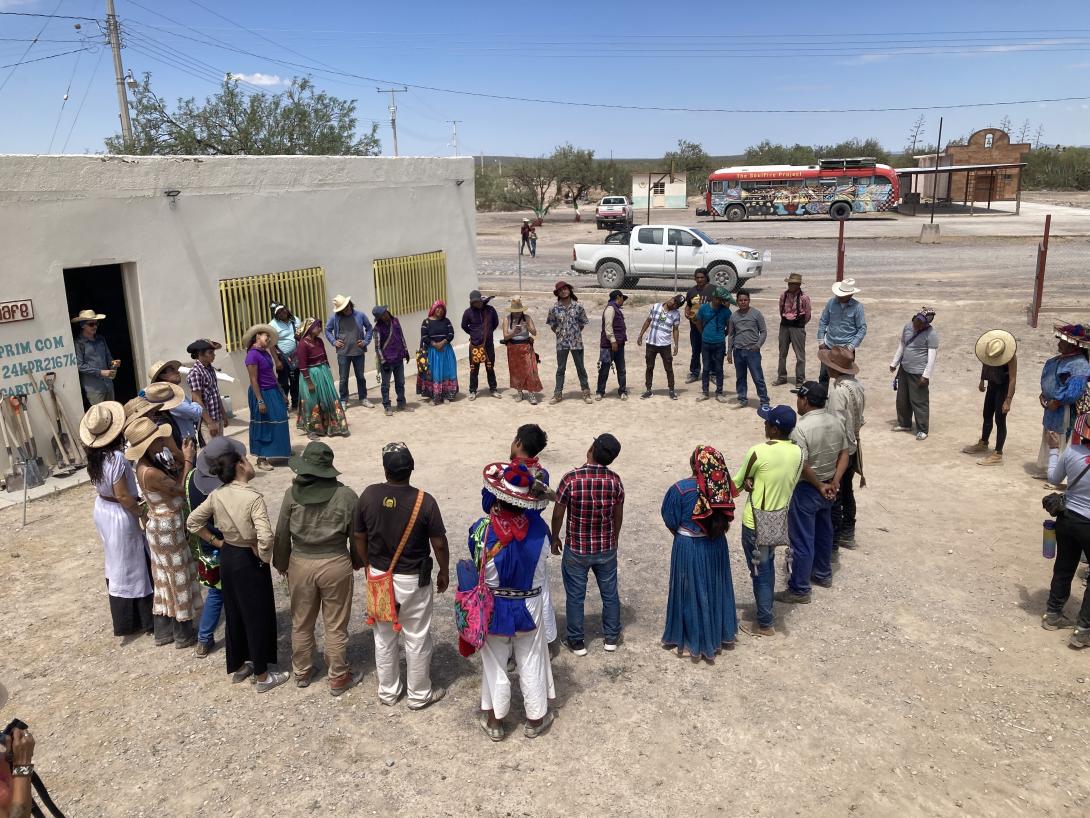Environmental Work old

Intercultural trainings at the Las Margaritas Elementary School
As the Negrín's gained more proximity with Wixarika families and communities, Juan became increasingly involved in advocating for their territorial rights. Starting in 1974, the Negríns became actively involved in non-profit work on behalf of the Wixárika people and co-founded two important non-profit organizations in Guadalajara. The first organization, AICAW (Asociación para la Investigación, Capacitación y Asistencia Wixárika was founded to provide housing, a balanced diet, and medical assistance to Wixaritari with serious illnesses who needed to be treated in hospitals or clinics outside of the Western Sierra Madre. AICAW has remained active for almost 50 years under the leadership of Rocío Echevarría. The second organization, ADESMO (Asociación para el Desarrollo Ecológico de la Sierra Madre Occidental), was dedicated to the advocacy of Wixárika land rights through locally driven ecological and sustainable development projects. ADESMO sought and secured funding for the development of carpentry and weaving workshops to provide work within the heartland of Wixárika territory, helping stem migration to the coastal tobacco fields where the Wixárika people were exposed to dangerous pesticides and hostile work conditions.
Our foundation continues to help design and implement environmentally sustainable projects in coordination with the Wixárika communities when requested and if petitioned by consensus at their general assemblies. In recent years, we have supported the construction of a new solar wood drying oven as part of the first stone for the now finished Tamatsi Páaritsika community high school in Nueva Colonia, in the community of Tuapurie, Santa Catarina Cuexcomatitlán. Since 2021, we have coordinated an important initiative in the sacred place of Wirikuta that promotes the development of projects that foment the participation and exchange of knowledge between two groups of people with the deepest history of this geography: the native small farmers and the Wixarika people. The activities that comprised the first phase will be carried out with the participation of local residents and small farmers, and with Wixarika university students specializing in agroforestry and natural resource management. We project that this model can also be implemented in the Wixárika communities in the Sierra Madre Occidental with few adjustments to better match the climatic context.
Subscribing to our newsletter is a good way to keep abreast of any new projects and current funding needs and will inform you of new things to look for on this website. We are a 501 (c) 3 nonprofit public foundation and rely on donations to support our continued work. We thank you for your support. ¡Pampariyutsi!
Please check out our program reports and newsletters here:
Phase II of Project Proposal 2022 (REPORT): https://www.wixarika.org/sites/default/files/public-files/english_agroecology_proposal_2022.pdf
Program for Biocultural Exchange in Wirikuta 2022 (REPORT): https://wixarika.org/sites/default/files/public-files/wirikuta_update_2022.pdf
Summer Wirikuta Gathering and Workshops Update 2023:





